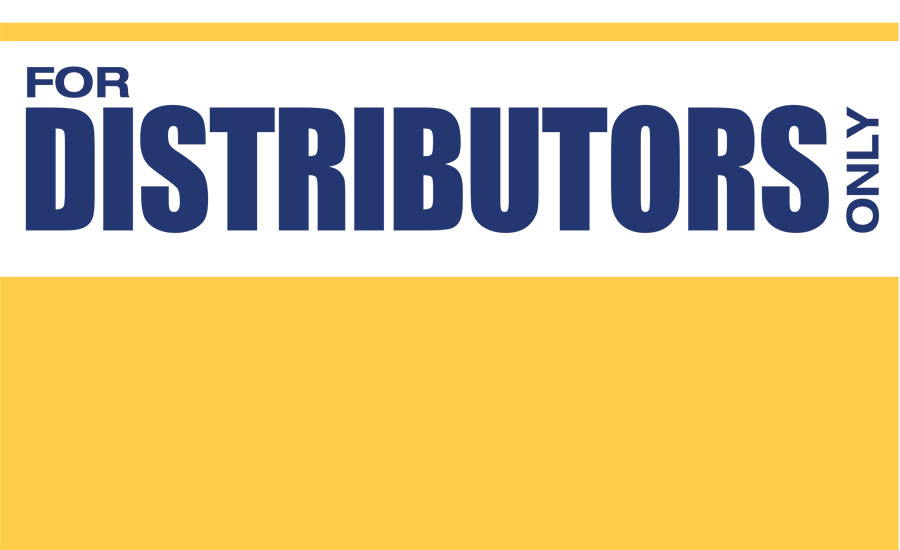As two of Fastenal’s five founding members, Kierlin and Slaggie guided the company since 1967. In addition to serving on the board of directors for 47 years, Kierlin was Fastenal’s president until 2001 and CEO until 2002; and Slaggie was the company’s treasurer, insurance risk manager, and investor relations director from 1987 to 1996. Two of the other three company founders retired from the board in recent years - John (Jack) Remick in 2007, and Henry (Van) McConnon in 2009. The fifth founder, Mike Gostomski, is slated to retire in 2015.
Kierlin is recognized as the visionary behind Fastenal, but his original vision — dispensing fasteners out of franchised vending machines — never came to pass. After being turned down by at least 30 potential investors, he finally convinced four friends (Remick, McConnon, Slaggie, and Gostomski) to help fund the venture, but they soon discovered there was little demand for fastener sizes and quantities that could be vended. So, the vending concept was tabled, and Fastenal’s store-based service model was born.
Slow going at first
The original store, a 1,000-square-foot facility located at 69 Lafayette Street in Winona, Minnesota, opened its doors for business on November 28, 1967. It was slow going at first, but they eventually turned a profit, acquired a second location (in Rochester, Minnesota - 1971), and amassed enough bulk fastener inventory, much of it stored in rented garages around Winona, to open a handful of additional stores in the region. These early locations set the blueprint for what proved to be a rock-solid business model: open stores as close to customers as possible, staff them with great people, and let them grow the business by exceeding customers’ expectations for service — an approach later distilled into Fastenal’s motto of Growth Through Customer Service®.
The company culture that emerged reflects Kierlin’s and the other founders’ core belief in people. Hierarchies and special privileges were leveled, managers and executives were almost exclusively promoted from within, and an emphasis was placed on decentralized decision-making, to the extent that stores were encouraged to do their own purchasing and set their own pricing based on local market needs.
Going public
By the mid ‘80s, Fastenal’s strategy was to grow the store count by 30 percent a year, but an infusion of capital was needed to maintain that trajectory. Steve Slaggie, who had a background in finance, was charged with gauging the investment community’s interest in taking the company public. After being turned down by a Twin Cities firm, he and Kierlin persuaded Milwaukee-based Robert W. Baird & Co. to assist with the IPO; and on August 20, 1987, one million shares were sold for $9 per share. This included 100,000 shares allocated for employee purchase and 285,715 shares used to create an educational endowment known as the Hiawatha Foundation, which has since generated more than $50 million for schools and students, primarily in the Winona, Minnesota area.
It’s difficult to summarize the ways Fastenal has grown since those early years — and how many opportunities have been created along the way — but here are a few statistics:
• In 1967 there was a single Fastenal store. At the time of the 1987 IPO, there were 50 stores, all clustered in the upper Midwest. Today, there are nearly 2,700 stores spanning all 50 states and more than 20 nations.
• In 1987, Fastenal’s total annual sales were approximately $20 million. Today, with sales of approximately $15 million per day, it takes less than a day and a half to hit that sales milestone.
• A statistic often overlooked, except by the company’s five founders: During the past 47 years, Fastenal’s employee count has grown from one (Van McConnon) to nearly 18,000 … and counting.
“Fastenal people made this company what it is today, but it never would have happened if our founders hadn’t fostered a culture that brought out everyone’s creativity and potential,” said Fastenal CEO Will Oberton. “On behalf of everyone on the ‘Blue Team,’ I’d like to thank Bob, Steve, Van, Jack and Mike for giving so many of us an opportunity to reward your belief in the power of Fastenal people.”
Fastenal sells different types of industrial and construction supplies in the following product categories: threaded fasteners and miscellaneous supplies; tools; metal cutting tool blades and abrasives; fluid transfer components and accessories for hydraulic and pneumatic power; material handling; storage and packaging products; janitorial, chemical and paint products; electrical supplies; welding supplies; safety supplies; metals, alloys and materials; and office supplies.
Fastenal operates approximately 2,700 stores located primarily in North America with additional locations in Asia, Europe, Central and South America, and Africa. The Company operates 14 distribution centers; eleven in the United States - Minnesota, Indiana, Ohio, Pennsylvania, Texas, Georgia, Washington, California, Utah, North Carolina, Kansas, and three outside the United States - Ontario, Canada; Alberta, Canada; and Nuevo Leon, Mexico. Additional information regarding Fastenal is available on the Fastenal Company website at www.fastenal.com.





